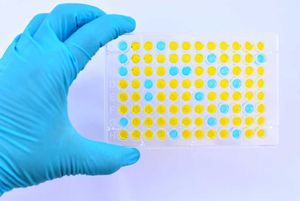Vγ9Vδ2 γδ T cells have been revealed to play anti-tumor effects in multiple tumors including renal cell carcinoma, non-small-cell lung cancer, gastric cancer, and others. Vγ9Vδ2 T cells can recognize tumor cells by the binding of NKRs and tumor antigens. NKRs are expressed on the surface of tumor cells, typically include NKG2D and DNAX accessory molecule-1 (DNAM-1). These receptors can recognize the various antigens on human tumor cells such as MHC class I chain-related molecules (MICA, MICB) and six ULBP-binding proteins. Vγ9Vδ2 T cells have been indicated to recognize ULBP1 and ULBP4 on leukemia, lymphoma, and epithelial tumor cells and induced their cytotoxicity to tumor cells. Besides, Vγ9Vδ2 T cells are induced to express multiple markers of antigen-presenting cells (APC) such as MHC I and II molecules, co-stimulatory molecules (CD80, CD86), and adhesion receptors (CD11a, CD18, CD54) under the stimulation of phosphoantigens, thus enable them to behave like APCs and present antigens to αβ T cells. In addition, Vγ9Vδ2 T cells can produce some cytokines such as IL-2, IL-4, and IL-10, and promote the secretion of antibodies by B cells.
